Cooler Master Mobius 120 Review
Introduction
Cooler Master has released a variety of high-performance fans over the years. Now they came out with another model that promises to be better & quieter than anything before. Let's take a closer look at the new Cooler Master Mobius 120!
Positive
- Good Noise-to-Performance
- Excellent Build Quality
Neutral
- Nice-looking dark-blue accent color
Negative
- The cable should be longer
What's in the Box?

Cooler Master's newest Mobius 120 Fans are coming inside the usual carton box covered in Cooler Master-inspired colors, some touchy images, and some specs.
Once every object is removed from the box we will find ourselves with the following items:
- Mobius 120 Fan
- 4x Fan Screws
Down below you will also find a summary of the Fan's specs:
| Name | Mobius 120 |
| Size | 120x120x25mm |
| Speed | 2050RPM |
| Airflow | 63.1CFM |
| Static Pressure | 2.69mm/H2O |
| Noise | <22.6dbA |
| Connection | PWM |
| Cable Length | 30cm |
| Bearing | Loop Dynamic Bearing |
| Motor | 4-Pole |
| RGB | - none - |
Installation
Installing a Mobius 120 is no different from any other fan available. Position the fan where it is supposed to be installed, screw in the screws, and you're done.

From there, the only thing left to do is connect the PWM cable to a PWM header on the motherboard. The cable attached to the fan is nicely fabric sleeved and seems like a high-quality addition to the fan. However, being only 30cm long, we believe the cable should have been longer.
Appearance
Although the images on Cooler Master's website might suggest otherwise depending on your monitor, a Mobius 120 fan is not actually all black.
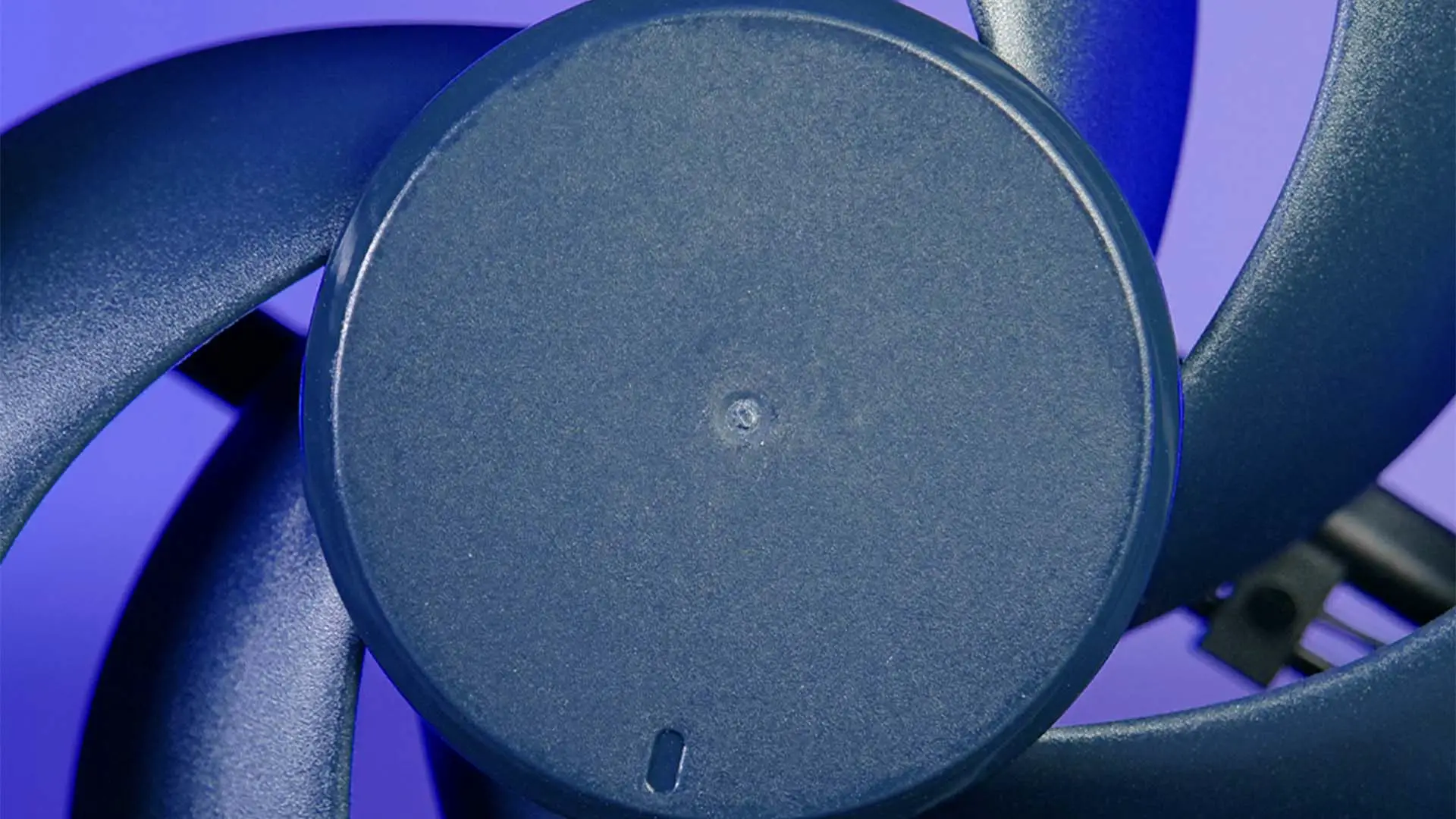
The Fan's outer frame is made out of the usual black plastic with some stamped-in Cooler Master Logos on the sides.
Thanks to various reinforcements and using high-quality materials, the Fans outer frame is incredibly stiff with no possibility to bend it to a degree at which the fan wing would start touching the border.
Each corner of the fan comes with a pre-installed piece of rubber for additional noise absorption.

The Fan Wing, however, is the first part at which this fan begins to be special. Instead of just using a heavily bent 7- wing design, Cooler Master decided to implement a Ring Blade Design. Similarly to some other Cooler Master and other Brand Fans, there is a ring of plastic going all across the outer ends of each wing blade creating a complete circle.
This circle not only helps to stabilize the fan wing during very quick rotations, but it also helps direct the pushed air into a specific direction, diminishing any "spread effect" if it is unwanted. Due to this diminished spread effect, we already saw other fans perform slightly better when used as an intake or exhaust case fan, thanks to the air going exactly where we plan it to go.

As said before, the Fan is not all black. Both the Fan's wings and the rubber pieces on each corner are painted in a very dark blue color. This provides the fan with a very subtle touch of color, making it still easy to integrate while not being "too much", or losing any simplicity that a uni-color design brings along.
Benchmark
We benchmarked Cooler Master's newest Mobius 120 on top of our usual Case Fan benchmark setup.
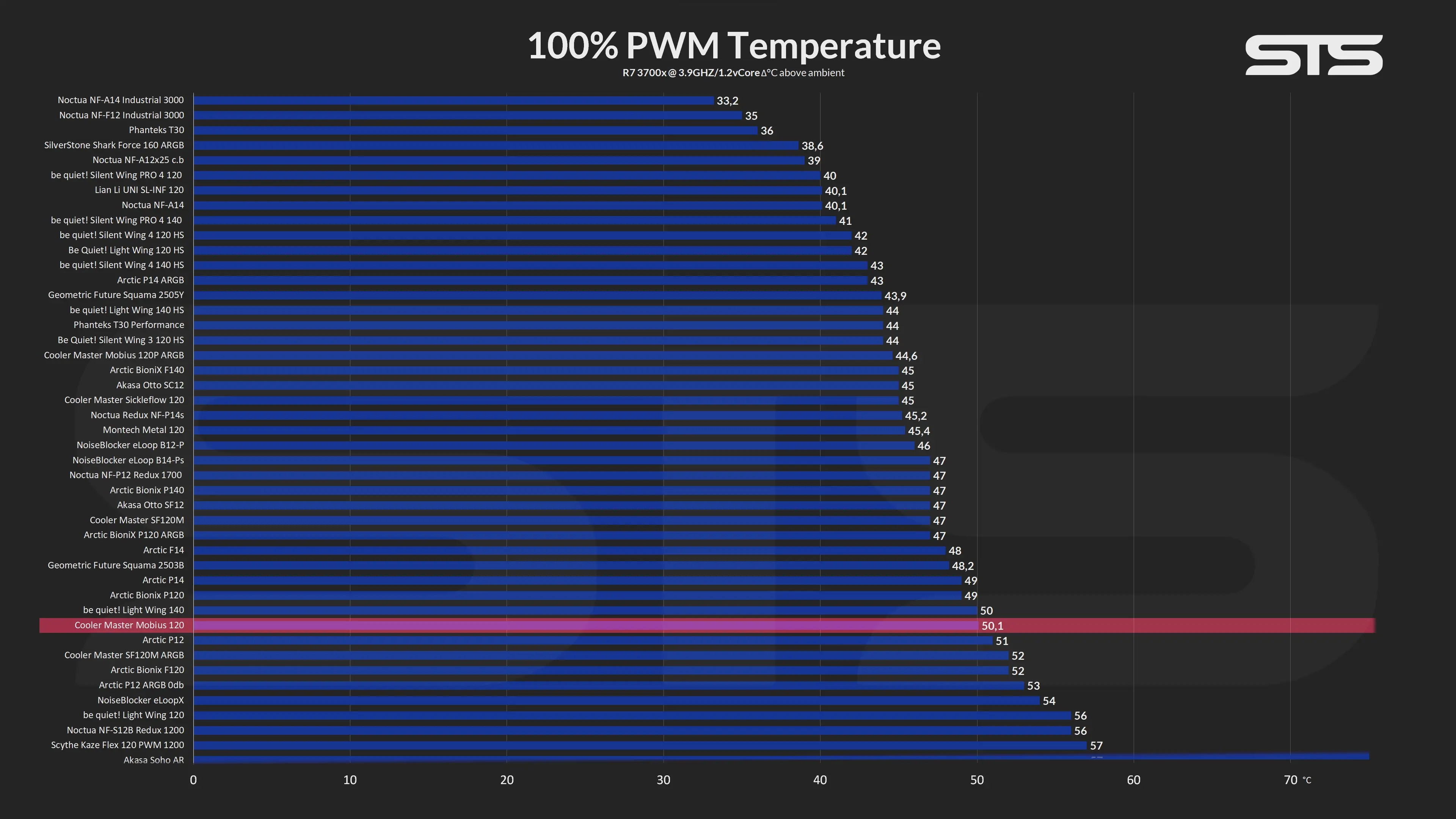
Whilst letting the fan spin at 100% of its fan speed, the Mobius managed to keep the CPU at 50.1°C, making it just ever-so-slightly better than Arctic's P12.
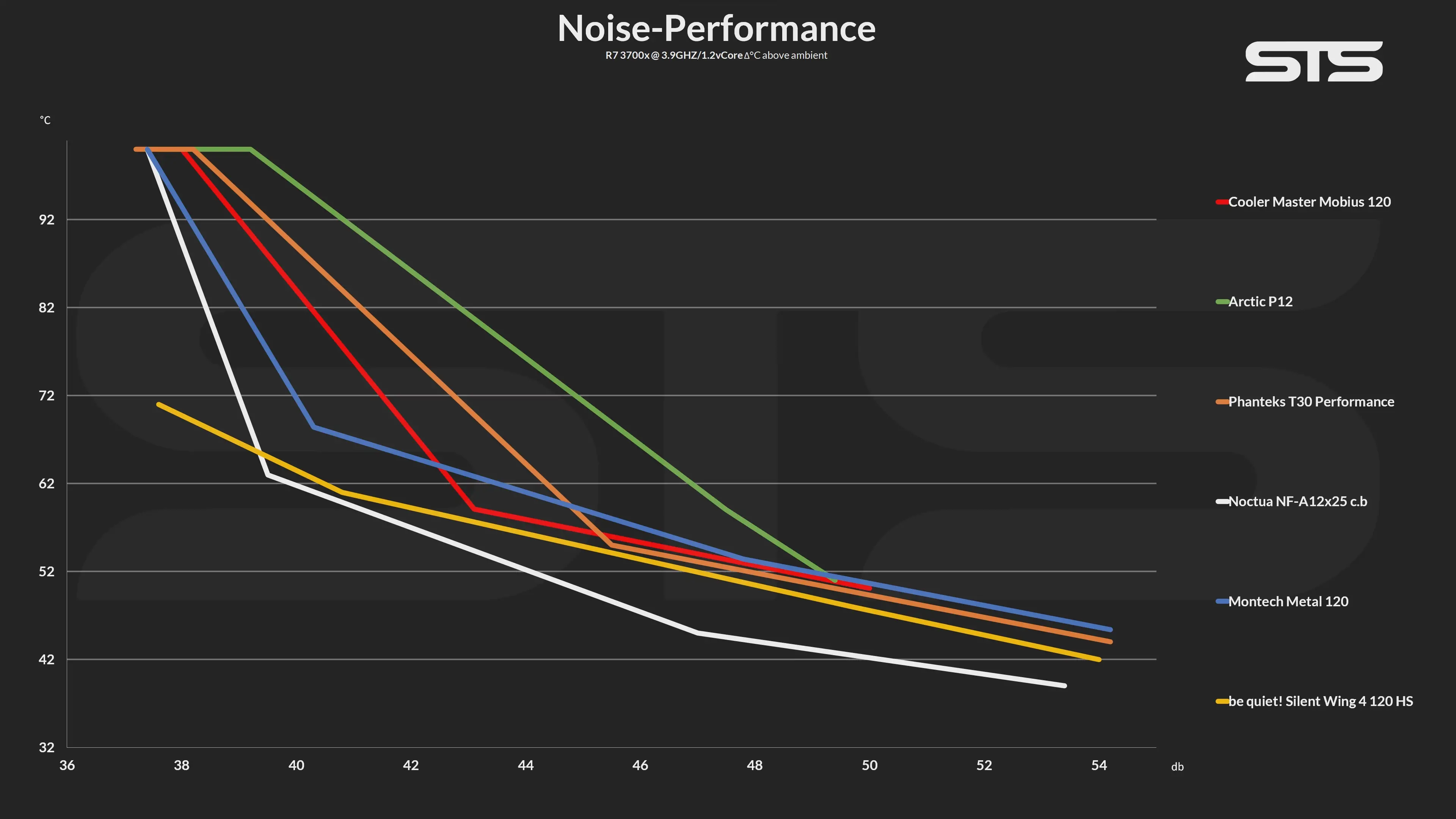
On the Noise-to-Performance side, however, we were able to see that the Mobius's strength lies within its noise-to-Performance ratio.
While the Mobius outperformed Arctic's P12 from start to finish, it also managed to outperform Montech's Metal 120 until about 30% of the Fan's max speed.
Simultaneously, it managed to be just slightly behind be quiet!'s Silent Wing 4 HS until the same 30% fan speed.
Conclusion
The Mobius 120 is a very interesting fan.
Although its max performance is clearly not over the roof, but pretty much average compared to all of the Fans tested so far, its noise-to-performance ratio is significantly better than we expected given its Max-Performance position.

One point that definitely stood out to us, however, is built quality. The outer frame is made exceptionally sturdy while the cable is nicely sleeved by using a fabric material.
The only aspect that we would have wished for is a longer PWM cable, and maybe a PWM splitter attached to the cable's end.
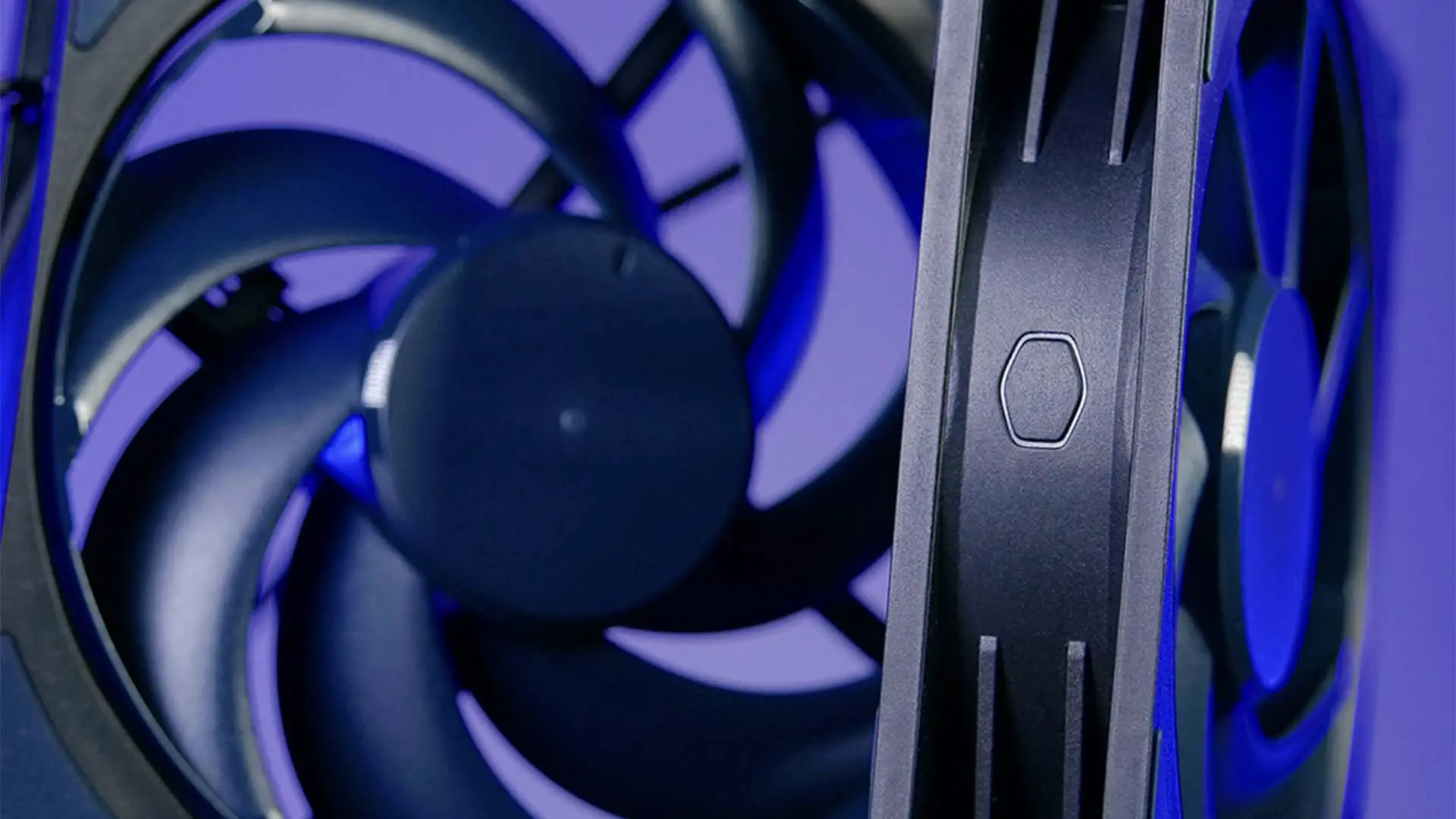
The color or design choice is also something that left a positive impression. Instead of going just all-black, Cooler Master decided to give the fan a very subtle touch of color using a very dark blue tone for the fan wings and rubber corners.
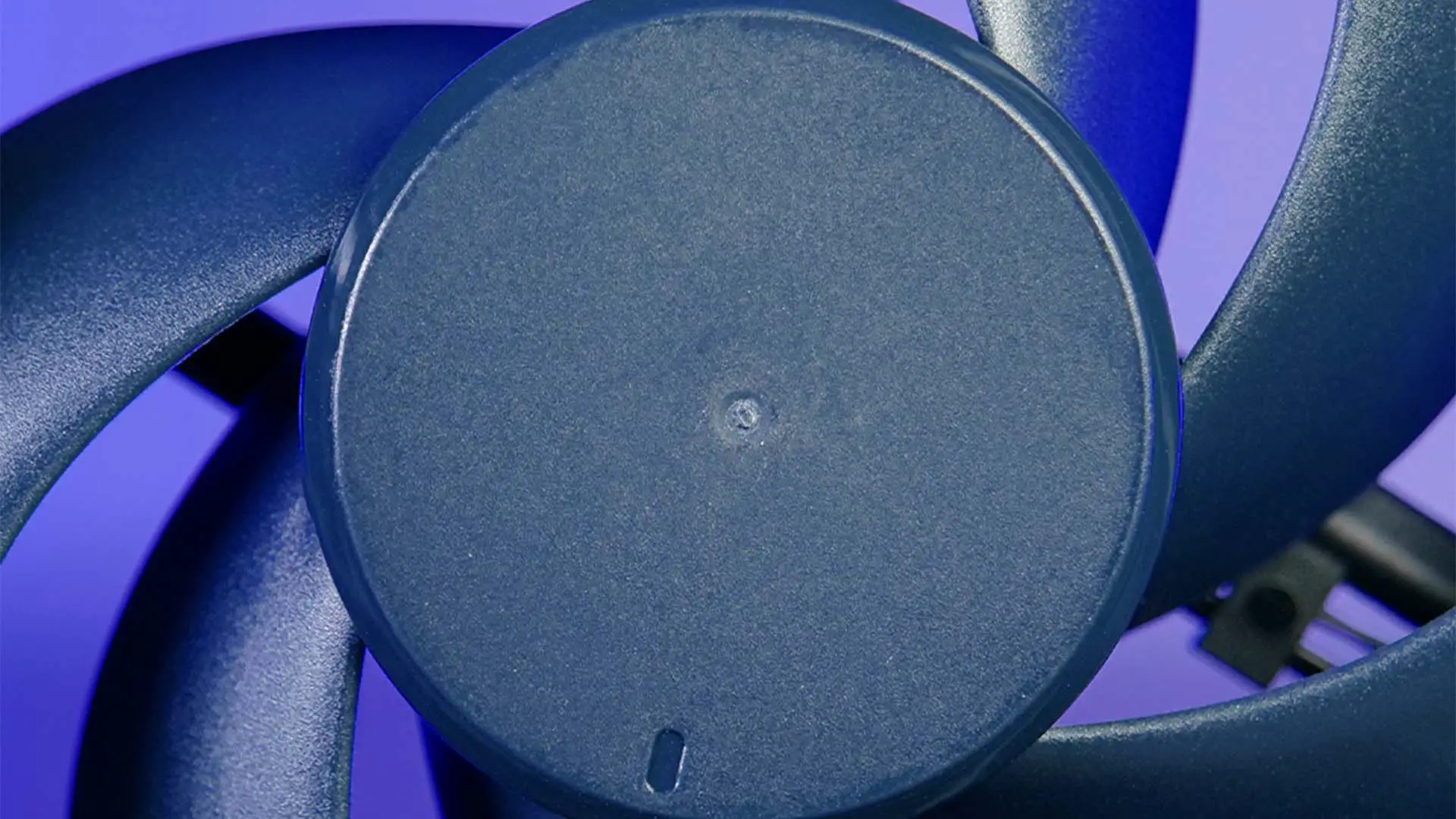
All in all, given its respectable Noise-to-Performance ratio, we believe the Cooler Master's Mobius 120 to be a relatively good option for a case fan.

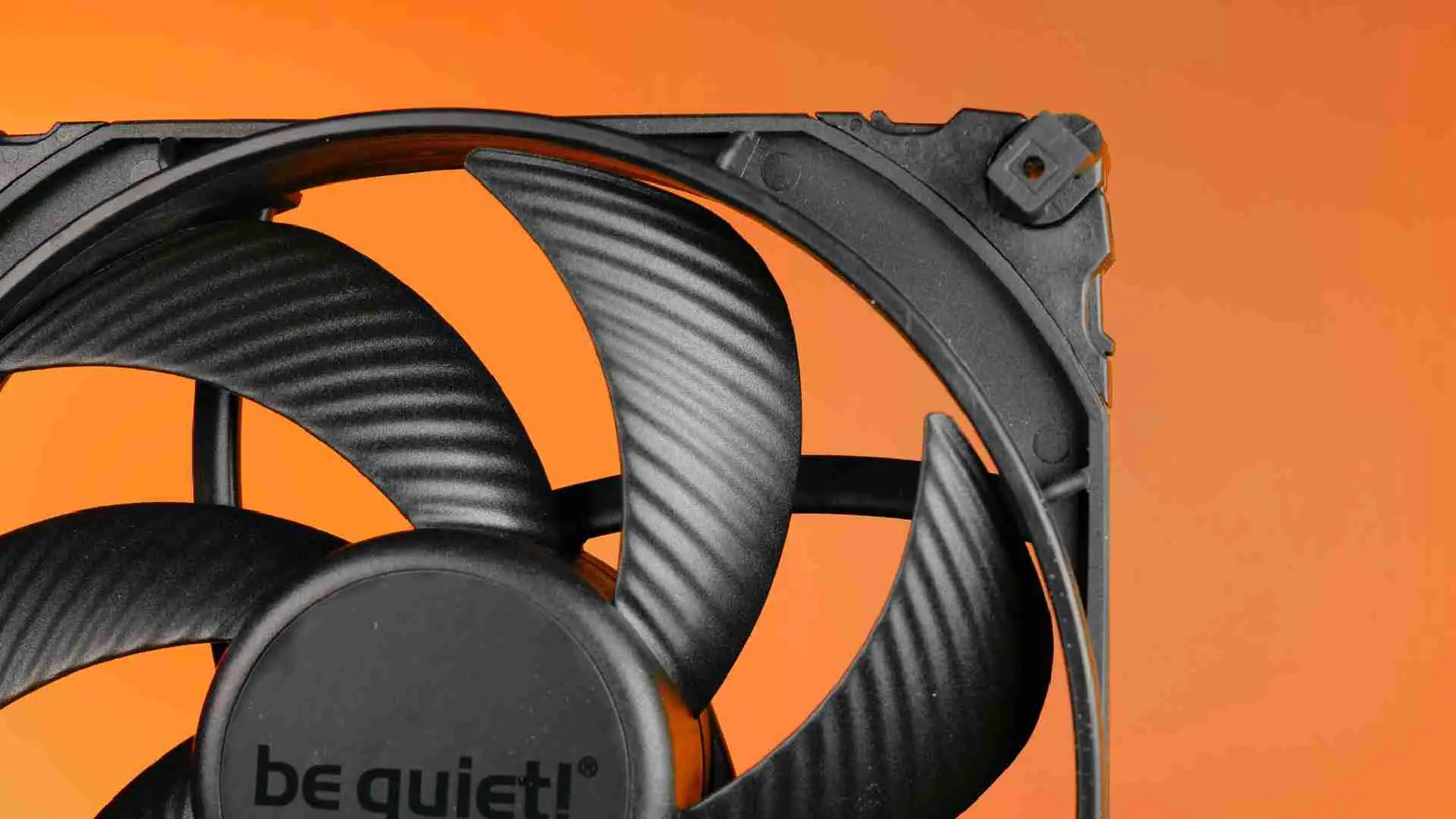
be quiet! Silent Wings 140 PWM Review
While the Silent Wings 140mm High-Speed was a best of a Case fan, we are going to take a closer look at its slower spinning P
Read More
Silent Wings 4 PWM 120mm Review
Spinning at 1600RPM, the Silent Wings 4 120mm PWM promises to be the ideal case fan. With multiple mounting mechanics and nea
Read More
Arctic P12 PWM PST Review
Arctics Lineup is not only extremely Budget-friendly but also seems to be performing pretty well (according to the spec sheet
Read More
be quiet! Silent Wing Pro 4 120 Review
be quiet!s newest Silent Wing 4 iteration promises excellent cooling performance while maintaining the Noise Level be quiet!
Read More